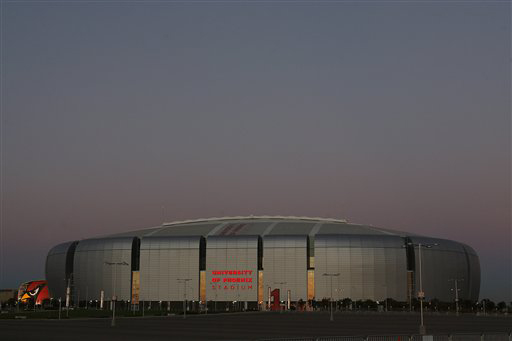
By Cate Carrejo
This Sunday’s Super Bowl was a fun, unifying cultural event for the country and a much-needed success for the NFL. According to Deadline Hollywood, the overnight ratings report showed a four percent spike over last year’s game and once again broke the record for most watched television event in history. In a year that has been plagued with scandals like Ray Rice’s domestic abuse case, Adrian Peterson’s child abuse conviction and the last minute Deflategate issue, the NFL needed the good publicity.
Deflategate was not the only scandal surrounding this year’s big game. The other is a scandal that has “gone on for decades unchecked,” according to FBI Special Agent George Steuer. It is widely known and reported that the Super Bowl and other high-profile sporting events cause huge increases in human trafficking. According to Forbes, 10,000 prostitutes were brought to Miami for the 2010 Super Bowl, and according to the New York Times, more than 100 prostitution arrests were made in the days leading up to last year’s Super Bowl. And these are only the incidents that have been reported in recent years.
Some believe that the increase in arrests is due not to an increase in incidences of sex trafficking, but to an increase in policing. This year’s and last year’s Super Bowls saw huge coordinated efforts from local and federal law enforcement in the organization of human trafficking task forces, leading to more concerted investigations and, therefore, more arrests.
However, the number of children who end up involved in sex trafficking around Super Bowl time is reason enough to consider this a very serious problem. This year, 18 juveniles were rescued from sex trafficking in the three weeks leading up to the Super Bowl, compared to just nine the entire rest of the year, according to the Phoenix division of the FBI. Last year, 16 children between the ages of 13 and 17 were rescued from a single child prostitution ring operating in New Jersey over Super Bowl Weekend. If even one child is harmed as an indirect result of the Super Bowl, the NFL should feel a responsibility to take action on this issue.
Unsurprisingly, however, this issue has been almost completely ignored by the NFL. Unlike this year’s infamous ad for nomore.org focusing on domestic violence (which, arguably, was only added to the broadcast for good PR in response to the Ray Rice scandal from earlier this year), human trafficking awareness ads have not been featured in the broadcast.
The NFL does not supply resources or support fighting human trafficking surrounding their events and the NFL Foundation does not donate to or support any human trafficking charities. The NFL seems to be treating the human trafficking problem surrounding the Super Bowl like two unrelated events so as not to bring any implication of complacency to the organization.
The worst part of the whole issue is that even though the NFL should take some responsibility for putting an end to the problem, the issue is actually caused by the same people who keep the NFL running: the fans.
The fans who go to the Super Bowl are, in fact, the ones who are creating the demand for prostitution, and because the NFL is only indirectly responsible for the problem, it feels no need to take responsibility for it. Even if the League were to speak out on the human trafficking problem, as long as the Super Bowl is still held, the trafficking would persist, because that practice and the league will still be supported by the same people.
Still, this seems to be a clear-cut case of priotizing commercialism over social justice. The NFL refuses to draw attention to the issue because any real crackdown or stand against human trafficking could result in a loss in profits. The league most likely believes that if it were to openly state that its events are surrounded by human trafficking problems, corporate partners such as Pepsi, Gatorade, Annheuser Busch and other companies looking to air commercials during games, would quickly pull their financial support from the League, crippling its profits.
The league has cause to be concerned about losing its corporate sponsors if it spoke out about the issue; however, this concern might not even be necessary. Even after the whole truth concerning the Ray Rice scandal was ferreted out, those same corporate sponsors stood by the NFL, many without hesitation. Even CoverGirl, with a customer base composed almost exclusively of women, and who received significant criticism for staying in the corporate sponsorship, decided to stick by the NFL. Clearly, the Proctor and Gamble-owned company cares more about advertising and sales than standing up for victims of domestic violence, a sorely ignored and invisible issue that affects over one million American women every year.
Although the Ray Rice incident occurred on a much smaller scale than the human trafficking problem, the same principle applies: making money is more important than denouncing an organization that protects abusers and criminals. It seems the disregard for human dignity and victim protection affects the NFL and all of its corporate sponsors as well. The league and its corporate partners are putting their profits and image over the concerns of actual people who are affected by the God complex American society has bestowed upon the NFL.
Cate Carrejo, FCRH ’17, is a communication and media studies major from Houston, TX.









































































































































































































